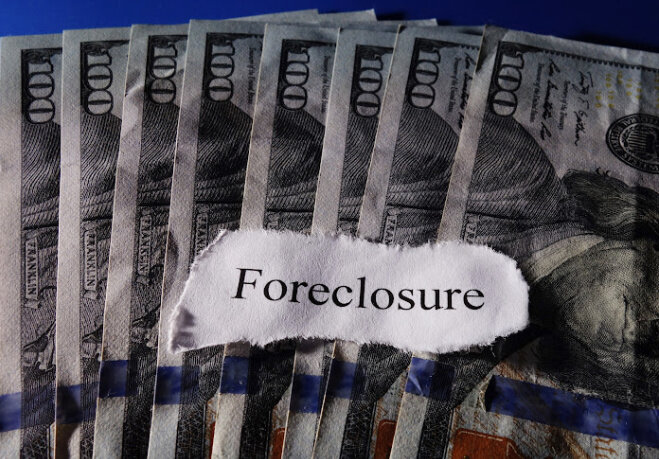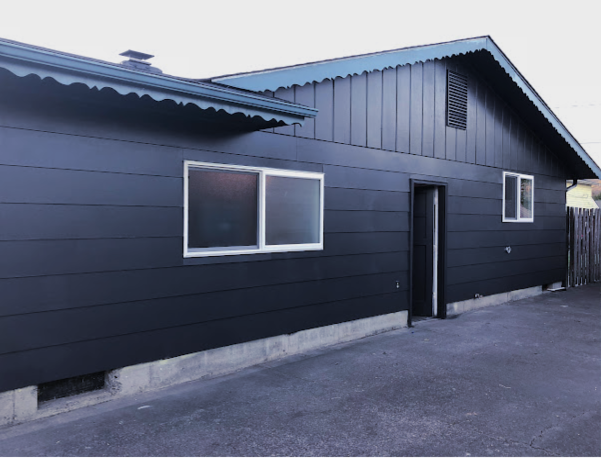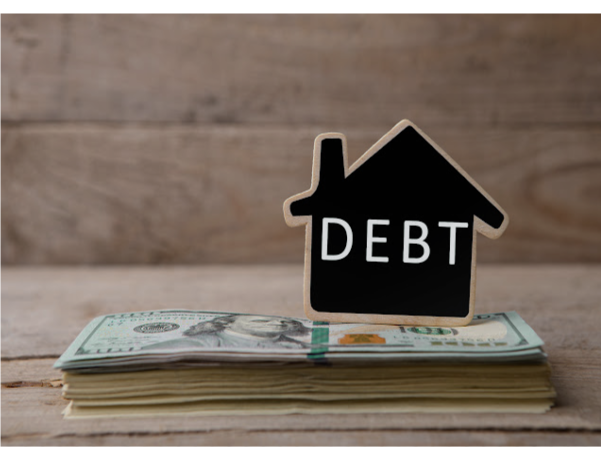What Is Foreclosure And How Does It Affect Selling Your Home In North Carolina?
Foreclosure is a legal process in which a lender takes possession of a property due to the homeowner’s failure to make mortgage payments. In North Carolina, foreclosure laws follow a judicial process, this means the lender must file a lawsuit and obtain a court order before selling the property.
This might cause a substantial delay in the foreclosure sale because the court process can take many months to finish. A house in foreclosure also has a harder time selling because it is marked as distressed, and this often turns off potential buyers.
However, homeowners facing foreclosure in North Carolina have options such as loan modifications or short sales to avoid losing their homes entirely. To successfully navigate this challenging process, it is crucial for those facing foreclosure to be aware of their legal rights and to consult with a knowledgeable real estate attorney.
Table Of Contents
1. What Is Foreclosure And How Does It Affect Selling Your Home In North Carolina?
2. Understanding The Foreclosure Process In North Carolina And How To Sell Your House
3. The Guide To Selling A House During The Foreclosure Process
4. Finding The Right Buyer For Your Home During The Foreclosure Process
5. Negotiating With Lenders And Buyers When Selling A House During The Foreclosure Process
6. Protecting Your Assets: Understanding Your Rights As A Seller During The Foreclosure Process
7. The Benefits Of Selling Your House Asap In North Carolina
8. Exploring Alternative Options: Is There An Alternative To Selling A House During Foreclosure?
9. What Type Of Foreclosure Allows A Property To Be Sold?
Understanding The Foreclosure Process In North Carolina And How To Sell Your House

Selling a home in foreclosure can be difficult, particularly in North Carolina. It’s critical to comprehend the foreclosure regulations and the choices accessible to homeowners in this circumstance.
In North Carolina, the foreclosure process typically begins when the homeowner falls behind on mortgage payments. The lender will then file a notice of default, giving the homeowner 45 days to pay off the past due amount or face foreclosure proceedings.
If the homeowner cannot pay within that time frame, a notice of sale will be issued, and the property will be auctioned off on the courthouse steps. However, homeowners have options such as loan modification or short sale to avoid foreclosure and sell their house.
Homeowners must seek legal advice and explore all options before deciding on their foreclosed property in North Carolina.
Crucial Timing: How Much Time Do You Have To Sell Your Home Before Facing Foreclosure In North Carolina?
If you are facing foreclosure on your home in North Carolina, it is crucial to understand the timing involved in selling your house. According to North Carolina’s laws, once a foreclosure case has been filed, you have approximately 45 days to respond before the court can enter a default judgment against you.
This means you must act quickly to sell your home before facing foreclosure. However, even if a default judgment has been entered, you still have the opportunity to sell your home until the court’s sale date.
Be mindful of the the timeline during the process of foreclosure. The timeline is important and can vary depending on individual circumstances and legal proceedings. Therefore, seeking professional guidance as soon as possible is advisable to explore all available options for selling your house before facing foreclosure in NC.
The Guide To Selling A House During The Foreclosure Process

If you are facing the possibility of losing your home to foreclosure in North Carolina, it is important to understand the laws and options available for selling your house. The foreclosure process can be overwhelming and confusing, but you can navigate it with a step-by-step guide.
The first step is to educate yourself on North Carolina’s specific laws and regulations regarding foreclosure. This includes understanding the timeline for the process and any redemption or reinstatement periods that may apply.
Once you have a solid understanding of the legal aspects, you can explore your options for selling your house during foreclosure. These may include a traditional sale, a short sale, or even working with your lender on a deed-in-lieu of foreclosure.
By following this guide and seeking professional guidance, you can ensure that selling your house during the foreclosure process in North Carolina is done efficiently and effectively.
Exploring Options: Can You Sell A House In Foreclosure In North Carolina?
When it comes to selling a house in foreclosure in North Carolina, there are several options that homeowners should be aware of. One of the most common options is a “short sale,” where the homeowner sells the property for less than what is owed on the mortgage.
However, this option requires approval from the lender and may still result in a deficiency judgment against the homeowner. Another option is to sell the property at auction, which can be done by either the homeowner or the lender.
Nevertheless, this may not always be successful in paying the entire amount owed on the mortgage and could possibly lead to a deficiency judgment. To completely avoid foreclosure, homeowners may also be able to collaborate with their lenders on a loan modification or repayment schedule.
Understanding these options and consulting with a real estate professional can help homeowners make an informed decision when facing foreclosure in North Carolina.
Navigating The Legalities: Selling A House In Foreclosure In North Carolina
If you are facing hard times and must try to sell a home in foreclosure in North Carolina, it is important to understand the state’s laws and options. The legal process of selling a house in foreclosure can be complex and overwhelming, but with the right knowledge and guidance, you can navigate through it successfully.
In North Carolina, the lender must go through a judicial foreclosure process, which involves filing a lawsuit and obtaining court approval before selling the property. This means that there are certain legal requirements and timelines that must be followed.
Furthermore, particular rules are in place in North Carolina to shield homeowners against deceptive actions taken by lenders during the foreclosure process. When selling a home that is in foreclosure, you must be completely aware of these rules and your rights as a homeowner.
Avoiding Financial Loss: Can You Sell A House In Foreclosure Before It’s Too Late?
To prevent financial loss, you must comprehend the rules and options if you’re facing foreclosure on your North Carolina home. Selling a foreclosure house before it’s too late is feasible, even though the procedure can be complicated.
In North Carolina, there are two main options for selling a house in foreclosure: a short sale or a pre-foreclosure sale. A short sale involves negotiating with the lender to accept less than what is owed on the mortgage, while a pre-foreclosure sale involves selling the property for at least the amount of the outstanding mortgage.
It is crucial to act quickly and seek professional guidance when considering these options in order to minimize financial loss and potentially save your home from foreclosure.
Finding The Right Buyer For Your Home During The Foreclosure Process

If you are in the unfortunate situation of facing foreclosure on your North Carolina home, it’s important to understand the laws and options available to you. One of the main concerns during this process is finding the right buyer for your home.
This can be a daunting task, but with proper research and guidance, you will get through this challenging time. It’s crucial to work with a real estate agent who has experience handling foreclosures and understands the market in your area. You may also want to work with a cash home buyer. A cash home buyer may be able to rid you of the home quickly.
They may assist you in pricing your property fairly and drawing in prospective purchasers who are eager to buy a foreclosure. Additionally, think about getting in touch with investors or businesses that deal in purchasing foreclosed homes.
These purchasers can be ready to buy your house exactly as it is, saving you extra money, and they frequently have more wiggle room when it comes to closing dates. In North Carolina, you might find the ideal buyer for your house during the foreclosure process if you are persistent and patient.
Preparing For Success: Tips For Successfully Selling A House While Facing Foreclosure
When facing foreclosure in North Carolina, it is important to understand the state’s laws and your options for selling your house. Preparing for success in this situation can seem overwhelming, but some tips can help you sell your house while facing foreclosure.
It is also important to be realistic about the sale price of your house and consider any necessary repairs or renovations to make it more marketable. Additionally, staying organized and keeping up with all paperwork and deadlines will help make the selling process smoother.
Finally, being open and communicative with potential buyers about the foreclosure status of your house can help build trust and increase the chances of a successful sale.
Negotiating With Lenders And Buyers When Selling A House During The Foreclosure Process
When facing the stressful situation of selling a house in foreclosure, it is important to understand North Carolina’s laws and options. One crucial aspect of this process is negotiating with both lenders and potential buyers.
Working closely with lenders is crucial to ensuring that all legal criteria are fulfilled during a foreclosure sale because they have stringent guidelines and procedures that must be followed. This may entail haggling over conditions like loan modifications or payback schedules.
On the other hand, negotiating with buyers may involve finding a balance between getting a fair price for the property while also satisfying the lender’s demands. It may also require disclosing any known issues with the property upfront to avoid potential legal issues down the road.
By understanding these laws and options, sellers can navigate negotiations successfully and potentially avoid further financial loss during this challenging time.
Maintaining Control: Staying Involved Throughout The Sale Of A Home During Foreclosure
Selling a house in foreclosure can be a complicated and overwhelming process, especially in the state of North Carolina where there are specific laws and regulations to follow. As a homeowner facing foreclosure, it is important to understand your options and stay involved throughout the sale of your home.
This entails taking an active part in the procedure and staying informed of any updates or modifications that might take place. You can ensure that your best interests are represented and maybe prevent your home from being sold for less than it is worth by being in charge and being involved.
It is also crucial to seek guidance from experienced professionals who can help navigate through the legalities and complexities of selling a home during foreclosure in North Carolina.
Protecting Your Assets: Understanding Your Rights As A Seller During The Foreclosure Process

It’s critical to know your rights and options as a seller in North Carolina going through a painful foreclosure process. Although state laws protect the borrower and lender, sellers must also understand their legal rights.
One key aspect to consider is the right of redemption, which allows you to buy back your property within a certain period of time after the foreclosure sale. Additionally, North Carolina also offers mediation services for homeowners facing foreclosure, providing an opportunity to negotiate with the lender and potentially find a solution that avoids losing your home.
Learning From Experience: Lessons From Those Who Have Successfully Sold Houses During Foreclosure
When it comes to selling a house in foreclosure, North Carolina has specific laws and options that must be understood. However, one of the best ways to gain insight into this process is by learning from those who have successfully sold their houses during foreclosure.
These individuals have experienced firsthand the challenges and opportunities that come with this situation. From navigating legal requirements to finding interested buyers, they can offer valuable advice and lessons learned.
By listening to their experiences and incorporating their strategies, homeowners facing foreclosure in North Carolina can increase their chances of a successful sale.
The Benefits Of Selling Your House Asap In North Carolina
When facing the possibility of foreclosure on your North Carolina home, it can be a stressful and overwhelming situation. However, there are benefits to selling your house as soon as possible in this state.
By doing so, you can avoid the negative impact that a foreclosure can have on your credit score and financial future. Additionally, selling your house quickly can help you avoid legal fees and potential court proceedings associated with a foreclosure.
It also allows you to negotiate with your lender and potentially walk away with some equity from the sale of your home. Understanding North Carolina’s laws and options for selling a house in foreclosure is crucial to make the best decision for your situation.
The Pros And Cons Of Selling A House During The Foreclosure Process
Selling a house during foreclosure can have advantages and disadvantages in North Carolina. On one hand, it allows homeowners to avoid having their property foreclosed on by the bank and potentially damaging their credit score.
Additionally, there may be strict timelines and legal procedures to follow to sell the house, which can be overwhelming for those already dealing with financial stress. Ultimately, it is important for homeowners in North Carolina to carefully weigh the pros and cons before deciding on whether or not to sell their house during the foreclosure process.
Exploring Alternative Options: Is There An Alternative To Selling A House During Foreclosure?
When facing the possibility of foreclosure on a house in North Carolina, it’s important to understand the state’s laws and options for selling the property. However, many homeowners may wonder if alternative options are available to them instead of going through with a traditional sale during foreclosure.
While selling the house is often the most common solution, there are other options that homeowners can explore. For example, they may be able to negotiate a loan modification with their lender or pursue a short sale.
Contacting a housing counselor or attorney for guidance and support in navigating these alternative options is also worth considering. By being well-informed and exploring all possibilities, homeowners can make the best decision when facing foreclosure in North Carolina.
Breaking Down The Timeline Of The Foreclosure Process In North Carolina
When facing foreclosure in North Carolina, it is important to understand the timeline of the process. First, the lender must send a notice of default to the borrower, allowing 45 days to bring the mortgage payments current.
If this is not done, a notice of sale will be sent at least 21 days before the auction date. The sale can only occur on the first Tuesday of any month and must be advertised for at least ten days prior.
IIn the event that the property is sold at auction, a 10-day upset bid window exists during which a different buyer may submit a greater offer. The new owner must receive ownership of the property within 15 days if no greater offer is made.
However, if no buyer is found at auction, the lender becomes the new owner and may evict the borrower through legal proceedings. Homeowners facing foreclosure in North Carolina need to understand these timelines and their options for avoiding or addressing it.
Planning For Life After Successfully Selling Your Home During The Foreclosure Process
As a homeowner in North Carolina facing foreclosure, it is important to understand the state’s laws and options for selling your house during this process. While it may seem daunting, there are steps you can take to successfully sell your home and plan for life after the foreclosure process.
One option is to consider a short sale, where the lender agrees to accept less than what is owed on the mortgage. This can help you avoid a deficiency judgment and potential tax implications.
Another option is to work with a real estate agent who specializes in distressed properties and can guide you through the process. It’s also important to familiarize yourself with North Carolina’s redemption period, which allows homeowners time to buy back their property after a foreclosure sale.
By understanding these laws and options, you can make informed decisions and prepare for your future after selling your home during foreclosure.
How Do Foreclosures Work In North Carolina?
When selling a house in foreclosure in North Carolina, understanding the state’s laws and options is crucial. Foreclosures work differently in every state, and North Carolina follows a judicial process where the lender must file a lawsuit to foreclose on the property.
This implies that the homeowner may be able to keep their house through a formal legal process. On the other hand, the court will order a foreclosure sale if the homeowner is unable to pay off the mortgage or come to a settlement with the lender.
It’s important to note that North Carolina has a redemption period of 10 days after the sale for homeowners to reclaim their property. Additionally, some specific laws and regulations govern how foreclosures are handled in North Carolina, making it essential for homeowners to seek legal advice and fully understand their options when facing foreclosure.
What Type Of Foreclosure Allows A Property To Be Sold?
When facing the possibility of losing your home to foreclosure in North Carolina, it’s crucial to understand the different types of foreclosures and their implications. One option for selling a house in foreclosure is through a judicial foreclosure, where the lender must go through the court system to take possession of the property.
This process can be lengthy and costly for both parties involved. On the other hand, a non-judicial foreclosure allows for a quicker sale of the property, as it does not require court involvement.
However, this foreclosure may limit your options for negotiating with the lender. It’s essential to consult a knowledgeable attorney to fully understand North Carolina’s laws and determine which type of foreclosure best suits your situation when selling your house in North Carolina in foreclosure.
These findings apply to all cities in North Carolina, including Charlotte, Raleigh, Asheville, Wilmington, Greensboro, Fayetteville, and more. If you need to sell a house in North Carolina, then give Cardinal House Buyers a call today.
Get A Cash Offer For Your House Today!
Find out what your house is worth. Share a few details below.
| FORECLOSURE AUCTION | MORTGAGE LENDER | HOUSING FINANCE | MORTGAGES | HOME MORTGAGE | MORTGAGE LOAN |
| HOME LOAN | MORTGAGE LENDING | MORTGAGE DEBT | PROPERTY RIGHTS | PERSONAL LOANS | LOANED |
| LENDING | CREDITORS | ECOURTS | TRUSTEE | REAL PROPERTY | DEBTS |
| FINANCIAL DEBT | LAWYERS | ATTORNEYS | SUPERIOR COURT | REAL ESTATE LAW | DEEDS OF TRUST |
| DEED OF TRUST | CASH | ENTER A JUDGMENT | INFORMATION | CIVIL LAWSUIT | CIVIL ACTION |
| CIVIL CASES | STATUTORY | STATUTE | LIEN | BANKS | MONEY |
| CLERK OF COURT | CLERK | BANKRUPTCY | TAXES | REALTORS | COMPARATIVE MARKET ANALYSIS |
| ESTATE AGENTS | JUDGE | EMAILS | CREDIT REPORT | CONDOMINIUM | LEGAL TITLE |
| EQUITABLE TITLE | PROPERTY OWNER | PHONE | REFINANCE | REFINANCING | PROMISSORY NOTE |
| MARKET VALUE | INTEREST RATES | FAIR MARKET VALUE | BENEFICIARY | LOSS MITIGATION | INCOME |
| TRANSACTION | EVIDENCE | EVICTION | COMPANY | CHAPTER 13 BANKRUPTCY | BIDDER |
| RISK | REAL ESTATE INVESTORS | MARKETING | LAW FIRM | INVESTMENTS | FORBEARANCE |
| CREDIT CARDS | VALUE | THE UNITED STATES | U.S. | PHONE NUMBER | SHERIFF |
| REPOSSESSING | REPOSSESSION | REAL ESTATE OWNED | REO | PROPERTY VALUE | APPRAISED |
| NOTHING | HOMEOWNERS’ ASSOCIATION | PUBLIC AUCTION | SHERIFF’S SALE | EXPENSES | DIVORCE |
| DEED IN LIEU OF FORECLOSURE | CONTRACT | CONTRACTUAL RIGHT | CONTINUANCES | AUTOMATIC STAY | AUTOMATIC STAY PROVISION |
| THE NORTH CAROLINA | NORTH CAROLINA IF | NORTH CAROLINA THE | A FORECLOSURE AUCTION | TO THE LENDER | NORTH CAROLINA IN |
| THEIR MORTGAGE PAYMENTS | YOUR CREDIT REPORT | NORTH CAROLINA HOUSE | NORTH CAROLINA HOMEOWNERS | FORECLOSURES IN NORTH | IN NORTH CAROLINA WHAT |
| THE DEED OF TRUST | POSTED AT THE COURTHOUSE | NORTH CAROLINA IS A | IN NORTH CAROLINA IF | VALUE OF YOUR HOME | IN NORTH CAROLINA THE |
| IN NORTH CAROLINA IN | IN NORTH CAROLINA HOW | NORTH CAROLINA IF YOU | YOUR NORTH CAROLINA HOUSE | ON YOUR CREDIT REPORT | YOUR CREDIT REPORT FOR |
| FORECLOSURES IN NORTH CAROLINA |
Additional Resources for NC Homeowners
Learn more about selling your home in any condition
Click on the links below to learn more about selling your home under different circumstances.


